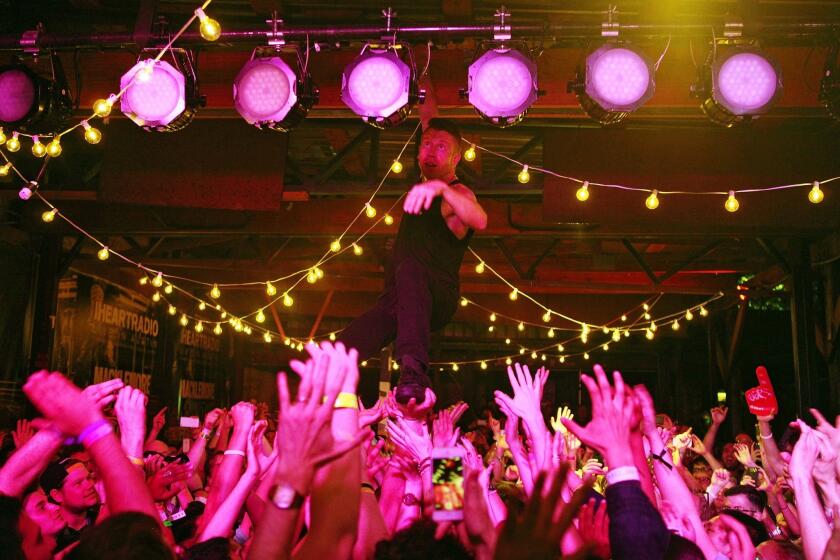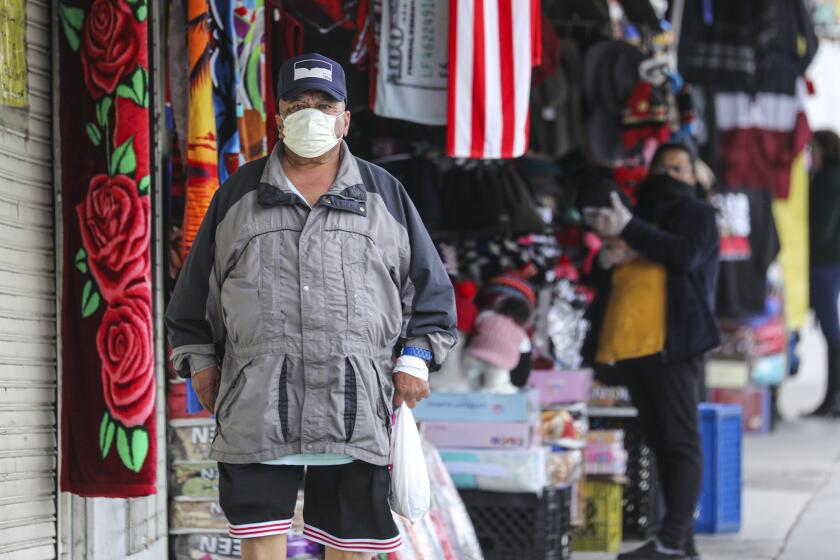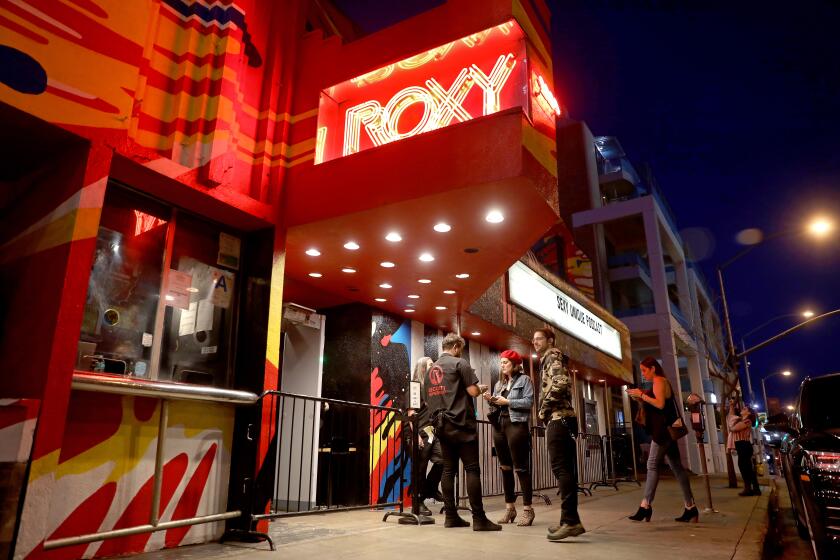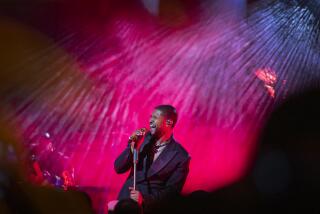‘Huge cloud’ hangs over concert industry as Live Nation and AEG shut down tours amid coronavirus
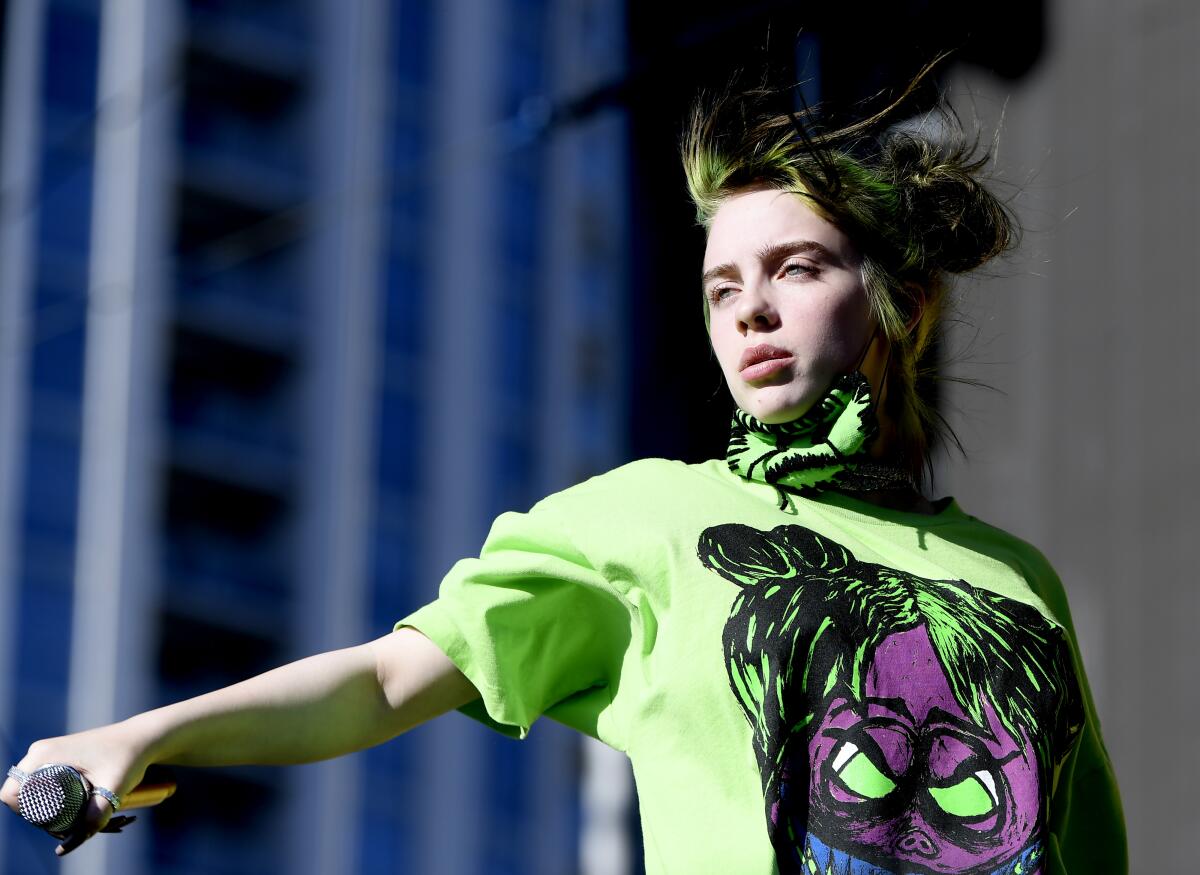
Barely five days ago, music fans and the concert business had a rude awakening to the reality of the coronavirus pandemic when promoters of the Coachella and Stagecoach music festivals bumped both back six months into October.
Just two days later, however, even that shock to the system was dwarfed as the entire live entertainment industry ground to a near halt, capped by the decision of the world’s two largest promoters of live music to halt all tours and shows, at least through the end of March.
Live Nation Entertainment and AEG Presents, both based in the Los Angeles area, are the leading promoters of events from massive festivals such as the Coachella Valley Music and Arts Festival in Indio to hundreds of other shows annually at sports arenas, theaters and clubs, many of which they also own and/or operate. Those include AEG’s Staples Center sports arena, the El Rey Theatre, the Fonda Theatre, the Shrine Auditorium, the Roxy, the Microsoft and Novo theaters and Live Nation’s Hollywood Palladium, Wiltern and Belasco Theatres and House of Blues in Anaheim.
Coachella, SXSW, “Hamilton,” the next “Fast and Furious” movie and even Disneyland have been affected by the coronavirus. But wait — there’s more.
On Thursday, both promoters suspended all events they had organized through the end of March, according to an extraordinary joint statement issued by a task force created by the two concert promotion behemoths and three major booking agencies. The move came in tandem with Gov. Gavin Newsom’s request for the postponement or cancellation of all events across the state anticipating crowds exceeding 250 people.
This week’s postponement of all national concert tours was interspersed with simultaneous announcements of suspension of the NBA and NHL 2020 season — which add to the impact the coronavirus is having on the Staples Center sports arena that is home to both — as well as the NCAA “March Madness” basketball playoffs, spring training in Major League Baseball and the temporary closures of Southland tourist attractions such as Disneyland and California Adventure to the Grammy Museum in downtown L.A.
The widespread interruption of the concert business threatens what over the last two decades has become the lifeblood of most musicians’ livelihoods. Unlike in decades past when recording and touring acts could count on a balance of revenue from sales of recordings as well as income from sales to concerts, the digital age virtually obliterated the money many artists derive from recorded music sales. In the streaming age, only the biggest superstar acts collect significant revenues from streamed music, which is typically paid at thousandths of a cent per stream.
“If you are a headlining act and have been touring for many years, hopefully you’ve been financially smart and can weather these wrinkles,” said country star Miranda Lambert’s manager, Marion Kraft. “Every American is always asked to have two to three months’ worth of savings in case something was to happen. The hope is that most artists have that buffer as well.”
Get the latest coronavirus updates from our staff in California and around the world.
The Taylor Swifts, Lady Gagas and Rolling Stones often do, but for mid- and entry-level acts it’s far more challenging given the overhead costs of performing live. Artists not only need to pay musicians who support them onstage but split their nightly takes among members of their road crews, sound engineers, stage and lighting designers, booking agents, managers, merchandise suppliers and vendors and myriad others who are indispensable parts of the touring profession.
It’s a comparable situation for the promoters and venues that put on these shows. The giants are considered capable of weathering the coronavirus storm, but it may represent an existential threat to some independent promoters and grass-roots level clubs and theaters. Of the nearly $22 billion in ticket revenue sold globally for live music events in 2019, Live Nation promoted about 60% of those shows, AEG handled roughly 30% and the other 10% were organized by indie promotion firms.
“This throws a huge wrench in the business at a bad time,” said Ray Waddell, who covered the concert industry for nearly 30 years for Billboard and is now president of Oak View Group, which owns Pollstar, the concert tracking publication. “The ripples are massive. There’s a whole economy built around this, a massive machine for every tour that gets rolling. You hate to see it ground to a halt. It hasn’t ground to a halt yet, but there is a huge cloud hovering over it.”
Thursday’s announcement brought a dizzying cascade of tour and concert cancellations or postponements, including the debut tour of 18-year-old phenom Billie Eilish, rock band Pearl Jam, veteran pop stars Celine Dion and Cher, English rock band the Who, New York rockers the Strokes, country superstars Kenny Chesney and Reba McEntire and adult pop vocalist Michael Buble, as well as high-profile music world events such as the Rock and Roll Hall of Fame’s annual induction ceremony.
The Forum in Inglewood, owned and operated by New York-based Madison Square Garden Entertainment, has rescheduled a number of events, including scheduled stops by the Strokes and Dion, and the Nickelodeon SlimeFest Tour featuring rising boy band Why Don’t We.
Another significant promoter of concerts and theatrical productions, Nederlander Concerts, likewise suspended all activities through the end of this month, including California tour stops by rock bands Wilco and Kansas, Christian singer-songwriter Amy Grant and the “Baby Shark Live!” touring show.
“Promoters, managers and venue operators are acting with an abundance of caution,” Nederlander Concerts CEO Alex Hodges said Thursday. “We’re just trying to pay attention, not panic and be responsible.”
Promoters are working closely with artists and their management to explore moving tour dates to later in the summer, the fall or in some cases even into 2021. But the complexity of the concert business makes moving an entire tour, or a significant leg of one, exceedingly difficult. Tours are often built around release dates of new recordings, which can’t always be easily rescheduled because of associated marketing and publicity considerations.
What many across the concert industry say is the toughest aspect of the coronavirus pandemic is the uncertainty about how long it will continue to spread, and how widely it will affect musicians, fans and those working in the concert business.
“The year we started in New York [in 2001] was the year of 9/11,” said Crush Music co-founder Jonathan Daniel, who manages performers including Green Day, Weezer, Sia, Lorde and Fall Out Boy. “Then we had the hurricane that hit New York [in 2012] and we had to cancel some things.
“But with those kinds of things, you’re reacting,” he said. “This is what we have, let’s figure out how to make the best of it. With this, there’s no end in sight.”
Live Nation Entertainment President Joe Berchtold tried to reassure investors about his company’s position during an investors’ conference earlier this month, reminding them that about 70% of the company’s business is generated from June and beyond.
“So, depending on what you read today,” Berchtold said, “it gives us some comfort that we’ve got a little time to play out.”
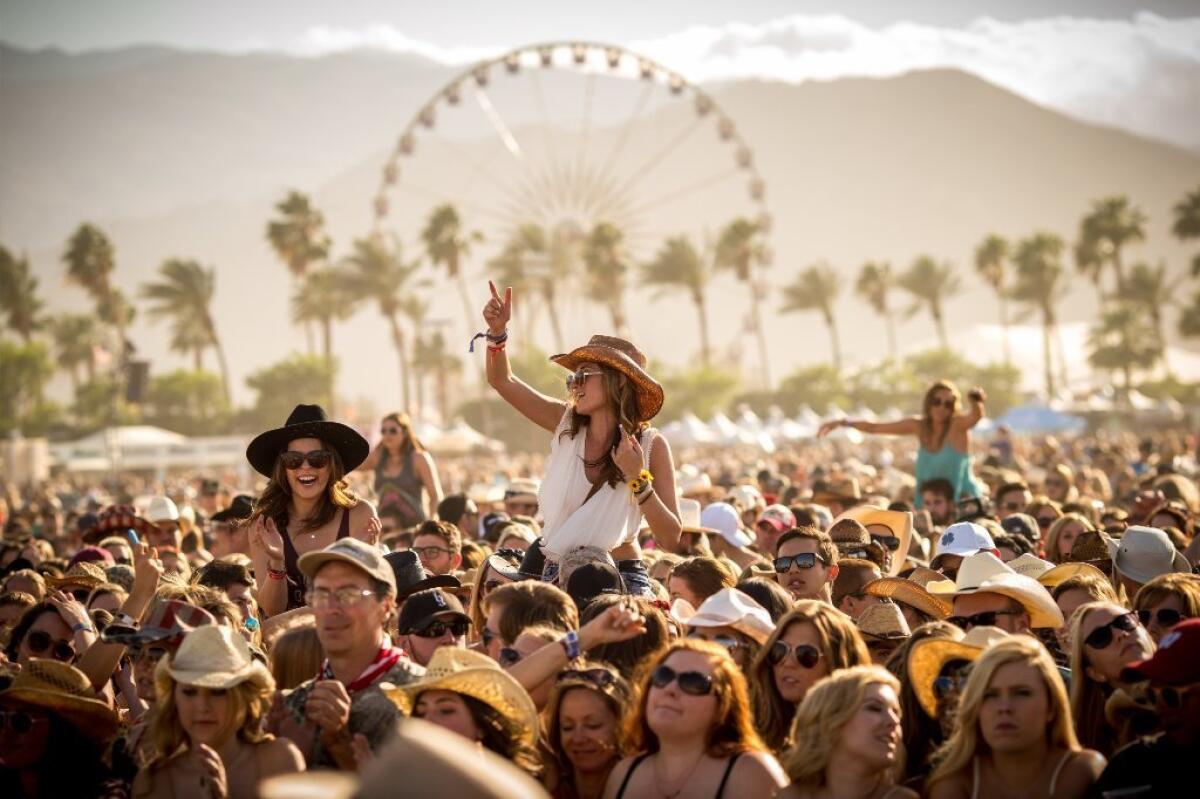
Both Live Nation and AEG are major employers, with Live Nation counting about 10,500 employees globally, while AEG, the parent of AEG Presents, listed 28,000 full and part-time employees in a 2018 diversity and inclusion report.
The concerts and festivals they promote across the country and around the world have impact far beyond the ticket sales registered at the box office. AEG/Goldenvoice’s Coachella and Stagecoach festivals are major contributors to the overall economy of the entire Coachella Valley.
A source with knowledge of AEG-Goldenvoice operations estimated the overall economic impact from those festivals at around $700 million annually, meaning that hundreds of businesses will feel the pain of the postponement along with performers and music fans.
In less than a month, Live Nation’s stock has dropped in value more than 50%, from a recent high of $76.08 on Feb. 19 to $36.20 at the close of trading Thursday.
L.A.’s nightclubs were still open this week, as musicians, concert industry workers and fans gathered, perhaps for the last time in the foreseeable future, amid the coronavirus pandemic.
Stephen Glagola, vice president of equity research at Cowen & Co., said that while “the near-term impact could be quite severe” to Live Nation, investors have overreacted to negative macro developments in the past that have affected the business very little.
“Pending when COVID-19 concerns dissipate, the live concerts industry has favorable supply and demand tailwinds that we expect to continue and help support growth,” Glagola told The Times by email. “Today, musicians are primarily reliant on touring as their main earnings driver, ensuring an adequate supply of quality content for fans year after year, and the experience economy is driving increasing demand for concerts.”
AEG Presents is a subsidiary of the Anschutz Entertainment Group, which in turn is a subsidiary of the Anschutz Corp., the world’s largest owner of sports teams, including ownership interests in the Los Angeles Lakers, the Kings and the Sparks, and sporting events. The parent company is controlled by billionaire businessman Philip Anschutz.
Some analysts said they expect AEG and Live Nation will be able to financially survive, but smaller concert promoters could be hurt if concerns about the coronavirus continue to cancel or postpone concerts in the months to come. That could lead to Live Nation acquiring them.
“Companies like Live Nation and AEG have plenty of cash liquidity, so they are going to be able to weather the storm,” said Brandon Ross, a partner and media and technology analyst at LightShed Partners.
“The longer this goes on, the more difficult it’s going to be,” Ross added, “which is probably going to breed a larger opportunity for the likes of Live Nation to grab even more market share on the other side.”
Meanwhile, entertainers and their teams continue to monitor the pandemic closely as they decide how, or whether, to proceed with tour plans.
“Concerts are there for people to feel better,” said Miranda Lambert manager Kraft. “If it’s making people feel anxious or worse to attend, then it’s not the time to be doing concerts.”
More to Read
The biggest entertainment stories
Get our big stories about Hollywood, film, television, music, arts, culture and more right in your inbox as soon as they publish.
You may occasionally receive promotional content from the Los Angeles Times.
